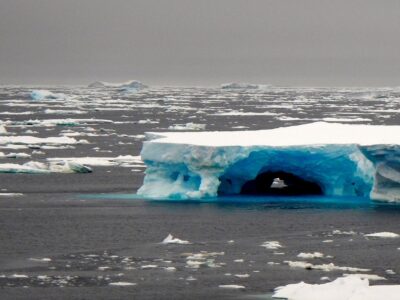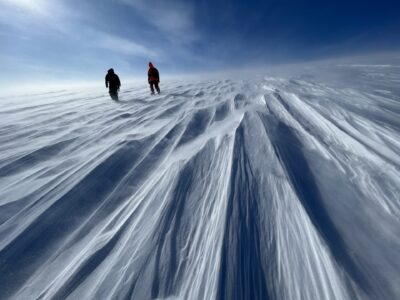A group of scientists in many fields is urging science ministers from around the world today in Washington to take immediate steps to prepare for a vastly different Arctic in the next 20 to 30 years. The group will present a new white paper at the first White House Arctic Science Ministerial, which is bringing together national science ministers, science advisors and other top officials from many countries.
The paper reviews climate impacts already underway in the Arctic, and examines further changes expected to take place even if the world meets the goals of the Paris Agreement. The authors find that Arctic temperatures could still increase by as much as 5 degrees C (9 F) if global temperatures rise by 2 degrees C, the ceiling set by the agreement. This rise could drive consequences for people, weather systems, landscapes and economies in the Arctic and far beyond.

“The impacts from global climate change are most severe in the Arctic,” said lead author Peter Schlosser, director of the Columbia Climate Center and chair of the Department of Earth and Environmental Engineering. “While much of the planet will need to address at least a 1.5 or 2 degree temperature rise, communities in the Arctic will see at least twice that. That level of warming will have far-reaching impacts on Arctic systems and on the rest of the planet.”
The scientists warn that as the Arctic continues to warm, it will experience substantial loss of ice from glaciers, ice sheets, sea ice and permafrost for the next 20 to 30 years. These changes will continue for much longer if immediate actions are not taken to drastically reduce greenhouse gases, the group said. They said accelerated warming in the Arctic may feed back into even more planetary warming through increased carbon and methane emissions from thawing permafrost, and greater absorption of solar radiation by dark surfaces newly denuded of ice.
“In essence, the Arctic is changing from a white, ice-covered, and stable environment toward a new state of instability with difficult-to-predict interactions, abrupt changes, and, importantly, global effects,” said Schlosser.
The scientists agree that immediate, dramatic action could moderate the changes that might take place after the next two to three decades. Taking these steps now offers the best chance at mitigating future impacts, they said.
The paper offers a number of recommendations. Among them: immediately scaling up alternative energy production; ramping up technical and financial support for Arctic societies so they can adapt; and developing an emerging Arctic Observing System, with early warning components and enhanced models to track changes in the region.
“The Arctic is unraveling on our watch, with serious ramifications regionally and globally,” said coauthor Brad Ack, senior vice president for oceans at the World Wildlife Fund. “The most important thing is to dramatically reduce our collective carbon pollution by going farther faster on the transition to renewable energy.”
The meeting will be attended by officials from Canada, China, Denmark,Finland, France, Germany, Greenland, Iceland, India, Italy, Japan, South Korea, the Netherlands, New Zealand, Norway, Poland, Russia, Singapore, Spain, Sweden, Switzerland, the United Kingdom and the European Union. The white paper is the product of a July 2016 workshop at Columbia University, organized by the Columbia Climate Center in collaboration with World Wildlife Fund and the group Arctic 21.



